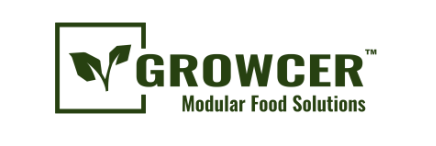Can You Make It Kosher?
These were a few of the questions we received before partnering with the Reena Foundation on an accessible vertical farm that - just a few weeks ago - achieved kosher certification.
Go behind the scenes on all the preparation required to make it happen
The first shipment of Asian Delight Choi from R&D's farm headed for inspection.
Levelling up to Kosher status
First things first, if you're unfamiliar with the term kosher, it refers to food and beverages that comply with Jewish dietary law.
When it comes to hydroponically grown greens, this means there can't be any bugs present. We know as controlled as controlled environment agriculture can be, it's not always 100% insect free.
Extra precautions
While all Growcer farms are designed to be closed systems, the movement of operators in and out of the farm create the potential for a sneaky critter to find its way inside.
To be as bug-free as possible, a few simple practices make an impact:
Ensure the air curtain at the farm's entrance is always turned on. In a Growcer farm, the air curtain gets triggered when the door is open (and then it blows a curtain of air to form a barrier between the outside and inside). However, it's always good practice to not leave your door open longer than it needs to be.
Practise good hygiene and always use the necessary PPE (we like to call it Plant Protective Equipment). If you have just finished a hike in the woods or a lovely walk through another greenhouse, it's probably a good idea to shower before you enter your Growcer farm.
The more the merrier - but not when you're trying to get certified. Limit the number of people entering your farm on a daily basis.
Keep up with regular farm maintenance. Excessive algae growth promotes fungal development and fungus gnats love it.
Invest in a Growcer Farm Hub to provide an extra buffer between your farm and the outdoors.
Modifications for Reena's Growcer farm
For Reena's Growcer farm, we added an extra layer of protection with an automated sliding door. The door offers two functions: keeping pests out and letting operators using a mobility device in.
So to recap, if a bug wanted to get in the farm they would have to pass: a door that a savvy operator opens infrequently, an air curtain that will blow them away, a vestibule area before the growing room, and a sliding glass door that probably won't open for a tiny fly.
Test run
Even before Reena's Growcer farm was delivered, Growcer's R&D team sent produce for inspection from its own R&D farm to see what was possible. If it was possible in a regular Growcer farm, it would be easier to achieve in an extra fortified farm.
A produce inspection involved checking three dry, unwashed heads or loose leaf samples for the presence of insects. This involved shaking the produce into a light box and checking the light box for signs of insects.
It also involved separating, soaking, and agitating the leaves in a clean container with water and food grade soap. The water then gets poured through a kosher screen and the kosher screen itself is checked thoroughly on a light box.
You have to submit multiple batches, from across the farm, for months, to pass certification.
Success
R&D's produce was found to have no insects, and then months later, Reena's Growcer farm successfully passed a more extensive testing period and set the standard for a bug-free growing environment.
The Reena Foundation now has kosher certification for their hydroponically grown greens - a first in Canada!
These certified greens have found their way to kosher-specific aisles and supermarkets in the greater Toronto area, catering companies, and local restaurants. To keep kosher status, continuous spot checks of Reena's modular farm will continue.




